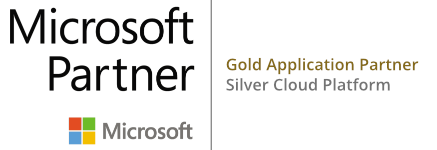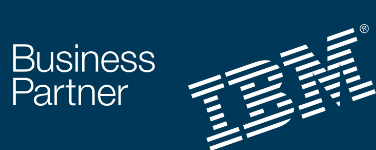Blockchain In Pharma And Clinical Trials
October 24, 2019
According to an excellent article in Pharmaphorum last year, the risky and unpredictable nature of the clinical trial process is a major driver of high costs for the medical industry. To justify the costs of drug development, most pharmaceutical companies aim to develop 2-3 new drugs per year. However, low success rates and long development timelines with clinical trials diminish the chances of a successful product to nearly zero.
This huge uncertainty translates into higher prices for everyone, from the pharma company to the end consumer. Notwithstanding increased costs, today’s researchers face several challenges. These include accurately reproducing data and efficiently sharing data (including personal data). Additionally, privacy concerns and patient enrollment strategies is another point of contention.
Blockchain in Pharma
Fortunately, blockchain in pharma is attracting significant attention in the research community and promises to provide solutions to all of these problems.
Blockchain in pharma utilizes a distributed computer network platform that enables databases to store time-stamped transaction records and documents. Each server (or node) in the network processes and verifies each data entry. It then archives all transactions, along with the history trail, which is every transaction ever recorded to the network.
The best part about blockchain in pharma is that data stored in a blockchain is virtually impossible to hack, infringe, or steal. This is because the ledger does not exist on a single repository, but distributes across multiple databases in replicate copies. These verification requirements ensure that stored data remains intact and immutable. Blockchain in pharma is emerging as a safe and secure platform for storing and processing all types of valuable information. This information ranges from clinical trial analyses results to business workflow documents to patients’ medical data and blueprints of genetic information.
Key points covered in this webinar
In this webinar, our presenter, Rama Rao, CEO and Co-Founder of Bloqcube, Inc., will share:
- The value chain in the pharmaceutical world
- The value in integrated trial systems – the importance of systems that talk to each other is just one system
- Real-time data (What is taken for granted? What’s missing? What are the pain points? And what are the gaps?)
- Case study: a Financial and Governance model
And by the end of the webinar, Rao will share a potential solution for blockchain in pharma.
Gartner Expert Report 1
Blockchain in Life Sciences
Analysis By: Michael Shanler; Andrew Stevens
Definition: A blockchain is an expanding list of cryptographically signed. irrevocable transactional records shared by all participants in a network. Each record contains a time Stamp and reference links to previous transactions. With this information, anyone with access rights can trace back a transactional event, at any point in its history, belonging to any participant. A blockchain is one architectural design of the broader concept of distributed ledgers.
Position and Adoption Speed Justification: Blockchain in life science is a variant of distributed ledger and structured trust protocols contextualized for the pharmaceutical and medical device industries in which value exchange transactions (in Bitcoin or other token) are sequentially grouped into blocks. Today, the primary potential applications include serialization, track-and-trace, genomic and clinical data sharing. It has become an extremely popular topic and strategic conversation with Gartner clients.
In 2019, there are still very few active blockchain projects within the life science industry. Even though “blockchain” is a top search term by clients at Gartner, less than 5% of lite science organizations have blockchain in their roadmaps and even fewer are working on funded projects today Most life science leaders aren’t clear on blockchain’s role, how it works and its overall positioning across technology deployments in regulated business units. Gartner clients express uncertainty in blockchain’s fit in maturing supply chain strategies and are unclear when it will be ready for their own use cases.
Gartner Expert Report 2
Business Impact: Blockchain and distributed-ledger concepts are gaining interest because they hold the promise of transforming industry operating models; however, multiple business use cases are yet to be proven. This is an opportunity for life science industry stakeholders to learn and to refine existing models as they evolve. The potential of this technology to radically transform economic interactions should also raise critical questions across the health value chain, including regulators. suppliers. patients and consumers. for which there are few clear answers today. As life science companies get more serious about blockchain, it will become critical to ensure that the right type or governance is applied to drive innovation, collaboration and more efficient supply chains. The benefits, if the technology can be applied correctly. are very clear Blockchain will enable efficiencies for reaching new customers, extending relationships with supply chain partners, better quality and more complete links between events, and it should expand the boundaries of traditional life science businesses.
Benefit Rating: Transformational
Market penetration: Less than 1 % of target audience
Maturity: Emerging
Sample Vendors: Blockpharma; Blockverify. EncrypGen; EXOCHAIN; Genecoin
On demand recording
Meet our panelists

Rama Rao, Founder and CEO of Bloqube
Rama Rao says – Delivering innovative solutions to address inefficiencies in the Pharmaceutical value chain, for the benefit of patients, is my passion. My strategic skills, problem-solving approach, inspiring teams, delivering innovative solutions to challenging issues, and proactively identifying solutions to strategic roadblocks makes me unique. As CFO, I have led complex operations in different business environments, in multiple countries ( US, Canada, Russia, Europe, and Africa) with a P&L range up to $3B in challenging environments. I led with integrity, developed talent, delivered innovative solutions, and partnered to deliver top tier performance. Functionally I have covered FP&A, Licensing, M&A, IT, Sourcing, Supply Chain, Operations, Treasury and Clinical Development Finance and the usage of LEAN methodologies to streamline processes. Bilingual ( French/English); schooled at ‘Ivy league schools’ of India (IIT/IIM)and France (INSEAD).

Hemant Elhence, President of Synerzip | Prime
Hemant Elhence is the Co-founder and CEO of Synerzip. He is a proven leader with a successful track record of identifying new market opportunities and building businesses to realize those opportunities. Hemant has extensive experience in the high-tech industry, including software products and services and semiconductor and people leadership.
Hemant has a BSEE from IIT Delhi, MSEE from the University Of Massachusetts, and an MBA from The University Of Chicago Booth School of Business. Hemant can be reached at hemant@synerzip.com.













